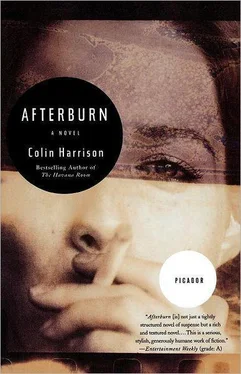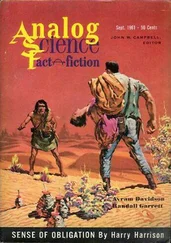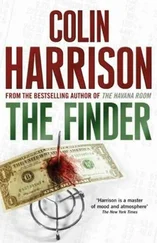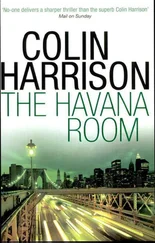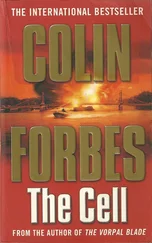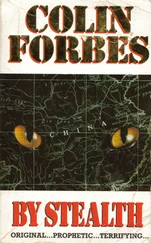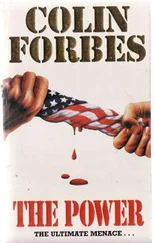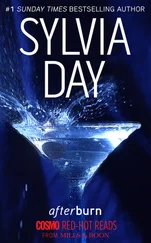Colin Harrison - Afterburn
Здесь есть возможность читать онлайн «Colin Harrison - Afterburn» весь текст электронной книги совершенно бесплатно (целиком полную версию без сокращений). В некоторых случаях можно слушать аудио, скачать через торрент в формате fb2 и присутствует краткое содержание. Жанр: Триллер, на английском языке. Описание произведения, (предисловие) а так же отзывы посетителей доступны на портале библиотеки ЛибКат.
- Название:Afterburn
- Автор:
- Жанр:
- Год:неизвестен
- ISBN:нет данных
- Рейтинг книги:3 / 5. Голосов: 1
-
Избранное:Добавить в избранное
- Отзывы:
-
Ваша оценка:
- 60
- 1
- 2
- 3
- 4
- 5
Afterburn: краткое содержание, описание и аннотация
Предлагаем к чтению аннотацию, описание, краткое содержание или предисловие (зависит от того, что написал сам автор книги «Afterburn»). Если вы не нашли необходимую информацию о книге — напишите в комментариях, мы постараемся отыскать её.
Afterburn — читать онлайн бесплатно полную книгу (весь текст) целиком
Ниже представлен текст книги, разбитый по страницам. Система сохранения места последней прочитанной страницы, позволяет с удобством читать онлайн бесплатно книгу «Afterburn», без необходимости каждый раз заново искать на чём Вы остановились. Поставьте закладку, и сможете в любой момент перейти на страницу, на которой закончили чтение.
Интервал:
Закладка:
A hand grabbed his foot. The gun indicated he was to climb upward into the chewing drone of insects.
A soldier pulled off his blindfold. He was standing on a dark jungle path. They put a rope around his neck. His back felt hot and weak, but he showed no pain so that they could not use it against him. Now, a few hours after dawn, direct sunlight did not penetrate the thick canopy of vegetation. Lushness out of control. Everywhere, huge leaves dripped. He sucked in the dense, wet air. Flies and mosquitoes swarmed in humming, adhesive clouds. The men bound his arms behind him. It hurt immediately, enough to make him hate them. He could feel the sweat drip through his clothing, a rash creeping across his armpits and groin. He wanted to scratch himself, shake loose his arms. The rope cut into his wrists so deeply that in a matter of minutes his fingers were numb.
A group of soldiers came along the trail, walking nimbly, each dressed in a black pajamalike uniform and carrying an AK-47 rifle. With them, led by a rope around his neck, walked a B-52 pilot, judging from the flight suit. A foot taller than the soldiers. His face seemed vaguely familiar-perhaps they'd shared some training class years ago. B-52s were rarely shot down, but it wasn't impossible; the huge planes were easy targets at low altitude and maneuvered ponderously when under attack. A bloodied bandage circled the man's mouth and jaw. The flier could even have been from one of the planes bombing the previous night. He walked with uncertainty, dragging his feet, bobbling his head as if something in his neck were loose.
"That man needs medical care." He wondered if his captors spoke any English.
"You go," one of the soldiers said, pushing him along the path.
"I need bandages and water. If you untie my arms-"
The Vietcong soldier put his rifle to the ear of the wounded pilot and indicated that he would shoot the man.
After three hours the wounded pilot crumpled onto the path. The Vietcong yelled and kicked at him to get up.
"Get him some water," Charlie said.
The Vietcong cut some vines and constructed a crude litter. The pilot made a noise when they rolled him onto it.
The ropes had cut off all feeling in Charlie's hands. The pain began again around his elbows and worked up the arms and circled his shoulders and dug into his chest. He tried to move his fingers, get the blood going. Nothing. If the ropes were removed, it'd be hours before he could use his arms. Even worse was his thirst. In the humid air he had sweated away perhaps seven or eight pounds, none of it replaced. He had no piss in him. His throat was dry, his lips sore. Branches and vegetation brushed against him; a latticework of cuts and scratches bled lightly. Insects flitted against his face. For a time he concentrated on putting one foot before the other. One and two. One and two, just say that. Fucking football practice. One and two. The earth was black and wet. The trail looked heavily used. He was glad the soldiers hadn't taken his leather flight boots, which had steel shanks. He wondered how they could walk in their little black sneakers. He could hear the other American moaning, calling to people not there.
The trail descended for several miles until they approached a wide stream. Shiny black larvae by the thousands hung from branches, so thick the trees were covered by a moist slithering mass that brushed off on him and the others as they walked. He shook his shoulders yet the larvae stayed on, inching purposefully across his chest, probing his skin with their pincer mouths. The larvae landed on the Vietcong as well, but they seemed unconcerned. Across the dirty green water stretched a footbridge suspended by woven vines. The floor of the bridge, only two feet wide, was constructed of heavy steel links in strips of about fifteen feet, old tank treads. When they reached the other side of the stream and had gone up the bank onto drier ground, one of the soldiers broke open a shell casing and removed the gunpowder, which he sifted with some dry powder he also carried. He wrapped the mixture with a large green leaf and lit the leaf with a butane lighter marked with the insignia of the Miami Dolphins. AFL. Don Shula. Acrid smoke billowed. The soldier jabbered in Vietnamese and he understood. The soldier circled the men with the burning leaf, enveloping them in the smoke. The larvae fell off, and they moved on.
They came upon an old elevated road. The guards hurried across this open space, looking left and right. Five feet to the other side, in the tall reedy grasses, sat the rusting hulk of a bulldozer cannibalized for parts. A remnant from the colonial period, when the French tried in vain to build a highway system. They had lost one hundred years in Vietnam, a century of sunsets.
An hour later, the men untied his hands but still kept the rope around his neck. His arms fell to his sides and flopped uselessly. It was hard to walk that way, and he waited for the feeling to come back. He noticed the trail got wider and flatter, with smaller paths leading off from the main one. Then, as if they had passed an invisible boundary, the trees became twisted and ripped apart, great banks of browned leaves hanging down, odd patches of light streaming through the canopy. The land fell in a valley and opened up.
Before him for hundreds of yards the ground lay blackened and cratered, as if the earth itself had collided with something, leaving a planetary skid mark. Charred tree trunks stood limbless, leafless, dead. Birds winged silently over the earth, and a gray-blue pall lingered in the low places, the smoke of what had been. Here and there, under clods of soil, protruded the remnants of a hootch, broken crockery, spilled rice, the wheel of a bicycle.
The soldiers yanked at the rope around his neck, urged him along. He lifted his eyes, understood why he hadn't seen any people. A creek ran through the bottom of the village. The muddy, disturbed banks were choked with corpses. The bodies lay tumbled and crushed and dismembered over one another, frozen pandemonium. Children, women, old men, stomachs bloated and streaked with rot, flies swarming over the portions above water, caught noisily in the wet black hair, buzzing on genitals, landing on toes, noses, knees. One and two. Farther down the stream lay five dead water buffalo. They looked healthy, well fed. Again, the flies. He knew the reason the villagers were all in one place. The B-52s had walked the bombs, flying slowly to create a thorough carpet effect. The big green lizards flew so high the village could not have been warned. The people had fled an approaching wave of fire and exploding earth, driving the water buffalo across the stream. The bombs had caught up.
A soldier prodded him with a rifle. They walked on.
The soldiers hiked until they reached a high spur of land. He was hungry, exhausted, but finally his hands were working. He figured the soldiers must be headed toward Laos, going nearly due west and toward the spine of mountains that marked the eastern border. They climbed higher along the spur as the light failed. He needed food and sleep. The night was clear; behind him, to the south and east, he saw a wide expanse, dark and undulating. The soldiers dropped the other pilot to the ground and camped. They ate cold sticky rice and took turns sleeping. He was made to sit near a ledge, his arms roped to a tree, his back grinding when he shifted. They gave him one cupful of rice.
Sometime during the night a huge soundless explosion bloomed to the south, maybe thirty miles away. Just a sudden ball of light, followed by lesser explosions, each eerily beautiful, rendered silent by the distance. In the morning he was not sure if he had dreamed them, or even slept.
He missed his children, their mouths and noses and eyes. Daddy, Daddy.
The next day they came to a village. He was dragged to a livestock pen with a galvanized trough of water. Three huge water buffalo stood to one side, hoof-deep in mud, switching their tails, the earth around them pocked by great flat turds. Using the same small book the first officer had used, an older Vietcong soldier tried to teach him the history of Vietnam through the millennia, fighting aggressors: Genghis Khan and the Mongols, the Chinese, the Japanese Fascists, the French imperialists, and now the Americans. Each foreign country, the soldier said in an up-and-down voice, had some pretext for war-the conquest of spice routes, Catholicism, the French mission civilisatrice, the "protection of freedom"-and each time the Vietnamese (the Vietcong saw no difference between the North and South Vietnamese, only that one part was trying to free the other from the Americans and their "puppets") repelled these attempts. "We fight for ten, twenty, fifty year. Your government want war over quickly. No know Ho Chi Minh! We lose ten men for every one of you, we still win."
Читать дальшеИнтервал:
Закладка:
Похожие книги на «Afterburn»
Представляем Вашему вниманию похожие книги на «Afterburn» списком для выбора. Мы отобрали схожую по названию и смыслу литературу в надежде предоставить читателям больше вариантов отыскать новые, интересные, ещё непрочитанные произведения.
Обсуждение, отзывы о книге «Afterburn» и просто собственные мнения читателей. Оставьте ваши комментарии, напишите, что Вы думаете о произведении, его смысле или главных героях. Укажите что конкретно понравилось, а что нет, и почему Вы так считаете.
